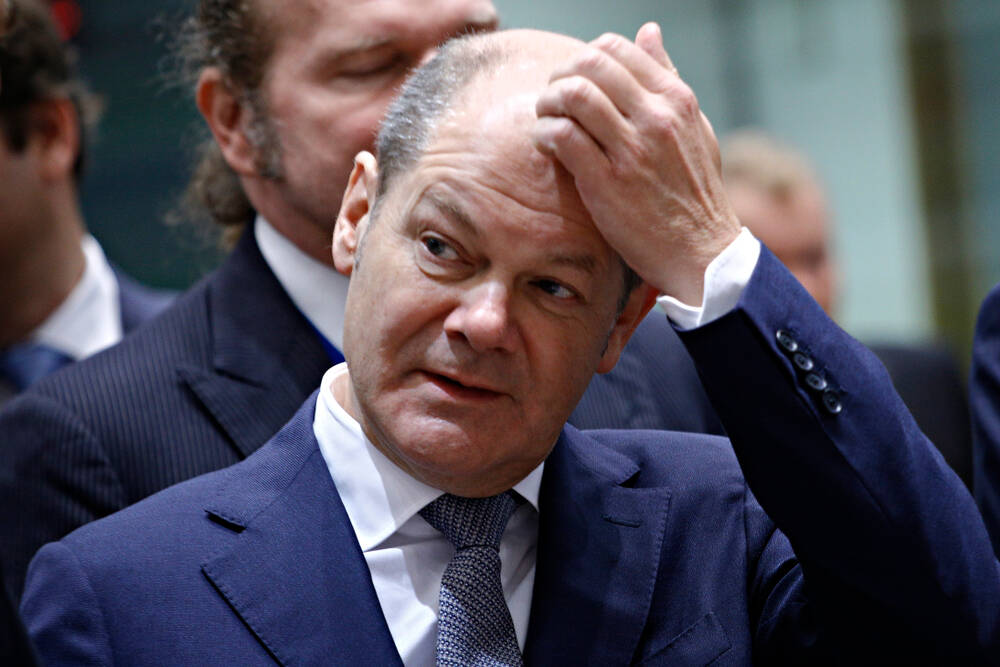Intel Rattles The Tin For Another €5B In Subsidies To Build German Fab

Intel is said to be asking for an additional €4-5 billion euros in subsidies to build a semiconductor manufacturing plant in Germany, on top of the €6.8 billion ($7.3 billion) already agreed.
The chip giant announced early last year that it had selected a site at Magdeburg in eastern Germany to build a new mega-fab after considering various locations across Europe. A few months later, it was announced that Intel was to receive €6.8 billion in subsidies from the German government, covering about 40 percent of the construction costs.
But the Santa Clara company now wants more, an additional €4-5 billion ($4.2-5.3 billion), according to Bloomberg, which cites the usual "people familiar with the matter" as its source.
Last month, it was reported that Intel had approached the German economy minister in hopes of securing an extra €3.2 billion in subsidies.
The latest move comes after the company hinted that it was going to delay construction of the Magdeburg facility in December, with a spokesperson saying at the time it could not give a definitive date for when work would begin, blaming "geopolitical challenges" and the rising cost of energy and raw materials.
Intel had previously stated that construction at the site would begin sometime in the first half of 2023, and it was planned for the facility to come online and production to start in 2027.
We asked Intel to corroborate the figures in these latest reports, but the company declined to be specific, with a spokesperson repeating to us that "since we announced plans to build a new semiconductor fab site in Magdeburg, Germany, disruptions in the global economy have resulted in increased costs, from construction materials to energy."
The company also declined to confirm when work would begin on the Magdeburg plant.
However, Intel said it was "committed to the project" and pointed to its signing off on the purchase agreement back in November for the land where the semiconductor manufacturing facility will be built.
- While Intel XPUs are delayed, here are some speedy FPGAs to tide you over
- China's government re-orgs Sci-Tech ministry to advance self-reliance push
- Intel buries news of GPU cuts and delays in low-key Friday post
- Chipmakers, you can have these billions – but Uncle Sam wants a cut of your profits
"Intel and the German government share the same objective: to build a more globally resilient supply chain by strengthening Europe's semiconductor manufacturing capabilities," the spokesperson told us.
According to Bloomberg, Germany's Federal Ministry for Economic Affairs is prepared to support the semiconductor industry with several billion euros, but that any additional sums would need to be approved by the European Commission.
The latter is because the subsidies will be approved as part of the European Chips Act, which aims to secure funding to boost the semiconductor industry within the EU, with the goal of doubling the bloc's market share to about 20 percent of global semiconductor production by 2030.
"We appreciate the constructive dialogue with the federal government to address the cost gap that exists with building in other locations and make this project globally competitive," Intel said in its statement.
Richard Gordon, Gartner vice president for semiconductors and electronics, told us: "It sounds like Intel has initiated another round of negotiations based on the changing business environment."
"No doubt Intel feels that is has a strong negotiating position due to increased competition from other countries to attract semiconductor inward investment."
Gordon speculated that in addition to subsidy cash, Intel may also try angling for the EU to sweeten the deal by providing incentives that may not have been offered so far, such as energy subsidies, streamlined bureaucracy around areas such as planning, or other exemptions.
Intel reported a $700 million loss and revenues down 32 percent during the chipmaker's calendar Q4 for fiscal 2022 due to declining demand in the desktop and laptop markets amid the wider economic downturn. ®
From Chip War To Cloud War: The Next Frontier In Global Tech Competition
The global chip war, characterized by intense competition among nations and corporations for supremacy in semiconductor ... Read more
The High Stakes Of Tech Regulation: Security Risks And Market Dynamics
The influence of tech giants in the global economy continues to grow, raising crucial questions about how to balance sec... Read more
The Tyranny Of Instagram Interiors: Why It's Time To Break Free From Algorithm-Driven Aesthetics
Instagram has become a dominant force in shaping interior design trends, offering a seemingly endless stream of inspirat... Read more
The Data Crunch In AI: Strategies For Sustainability
Exploring solutions to the imminent exhaustion of internet data for AI training.As the artificial intelligence (AI) indu... Read more
Google Abandons Four-Year Effort To Remove Cookies From Chrome Browser
After four years of dedicated effort, Google has decided to abandon its plan to remove third-party cookies from its Chro... Read more
LinkedIn Embraces AI And Gamification To Drive User Engagement And Revenue
In an effort to tackle slowing revenue growth and enhance user engagement, LinkedIn is turning to artificial intelligenc... Read more

